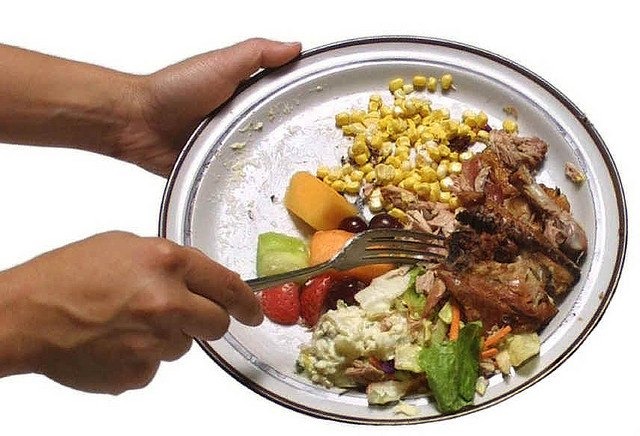5,000 New Yorkers Were Fed With Food That Would Have Been Thrown Out
Would you eat a meal made entirely out of food that would have otherwise been wasted? 5,000 New Yorkers did, and lived to tell the tale. The "Feeding the 5,000" event, held in Union Square in New York City, was meant to raise awareness about the ludicrous amount of food waste in the country, sponsored by multiple nonprofit organizations, including The Rockefeller Foundation, City Harvest, GRACE Communications Foundation, and Sustainable America.
We spoke with Chris Hunt, special advisor on food and agriculture at the GRACE Communications Foundation, who helped to organize the event.
The Daily Meal: How critical of an issue is food waste in our country?
Chris Hunt: I think it's a hugely important issue. We waste 40 percent of food we produce, and it also has a tremendous environmental impact. The vast majority of food wasted is sent to landfills which produces methane — a greenhouse gas — and on top of that, all this food waste is occurring while 50 million Americans face food insecurity. If we reduced food waste by 20 percent, there would be 100 billion dollars of economic value.
What is our obsession with throwing food away?
Food has become less expensive, leading people to be less careful; there's been a certain cultural shift. The exciting thing is that it's reversible. Once you point out the absurdity and enormity of the issue to people, there's great opportunity for behavioral change. It's not just consumers, it's also waste at retail level and farm level and processing level as well.
How do you assure food safety when putting on an event like this?
The ingredients used are top quality ingredients; there's nothing wrong with them. We're not talking about moldy food. We're talking about food that's perfectly edible that would have been wasted otherwise. This happens all the time. Part of the food is being sourced from salvation farms — taking produce that would have bene left to rot in the food. The food safety concerns are like with any other meal. That's part of what we want to demonstrate with the event, this isn't something that is problematic, the food isn't old or low quality.
Why would these ingredients get thrown out then?
There are a lot of drivers of food waste on the farm side: On a broader scale, food waste occurs because of overproduction. Another major driver is extremely high aesthetic standards in the U.S. If you look at the produce aisle, it all looks the same. We have this expectation of total perfection. If you have an apple that's too big or small, that won't be sold. This notion that people won't accept ugly fruits and vegetables isn't true. Then there's over purchasing that occurs. Shelves are always completely stocked when they don't need to be.
